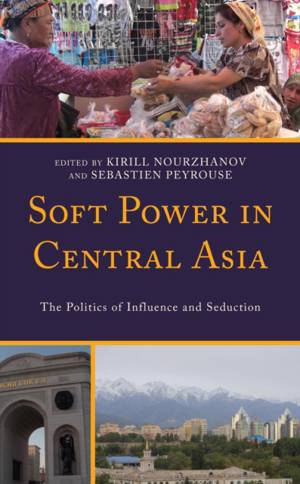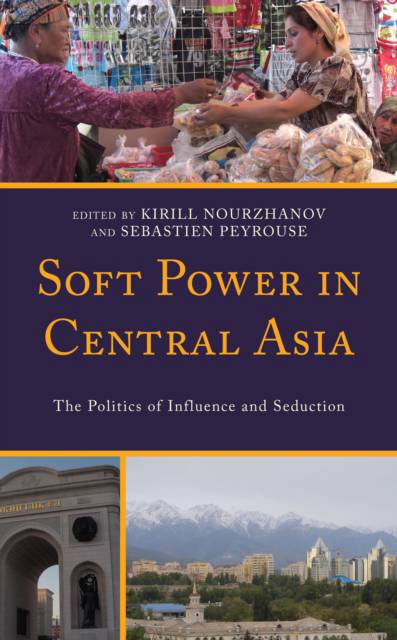
- Afhalen na 1 uur in een winkel met voorraad
- Gratis thuislevering in België vanaf € 30
- Ruim aanbod met 7 miljoen producten
- Afhalen na 1 uur in een winkel met voorraad
- Gratis thuislevering in België vanaf € 30
- Ruim aanbod met 7 miljoen producten
Soft Power in Central Asia
The Politics of Influence and Seduction
Omschrijving
Central Asia often evokes images of imperial power rivalry dating back to the 19th century. Yet as the region's international politics becomes more complex in the age of globalization, the need for new ways of looking at its many actors is more pressing than ever. Today even the traditional great powers rely increasingly on subtle forms of influence to augment their military might and economic clout in order to achieve their objectives in Central Asia.
Bearing this in mind, Soft Power in Central Asia examines the patterns of attraction and persuasion that help shape the political choices of countries in the region. Starting with an investigation of soft power projection by the US, Russia and China, it sheds light on normative transfer and public diplomacy of the European Union, Turkey and Israel, and concludes with a discussion of the Central Asian republics' active stance in the competition for the hearts and minds.
Containing original chapters contributed by leading experts in the field, the volume will appeal to scholars and professionals with interest in international relations, political science and Central Asian studies.
Specificaties
Betrokkenen
- Uitgeverij:
Inhoud
- Aantal bladzijden:
- 292
- Taal:
- Engels
- Reeks:
Eigenschappen
- Productcode (EAN):
- 9781793650795
- Verschijningsdatum:
- 6/02/2023
- Uitvoering:
- Paperback
- Formaat:
- Trade paperback (VS)
- Afmetingen:
- 152 mm x 229 mm
- Gewicht:
- 435 g

Alleen bij Standaard Boekhandel
Beoordelingen
We publiceren alleen reviews die voldoen aan de voorwaarden voor reviews. Bekijk onze voorwaarden voor reviews.










